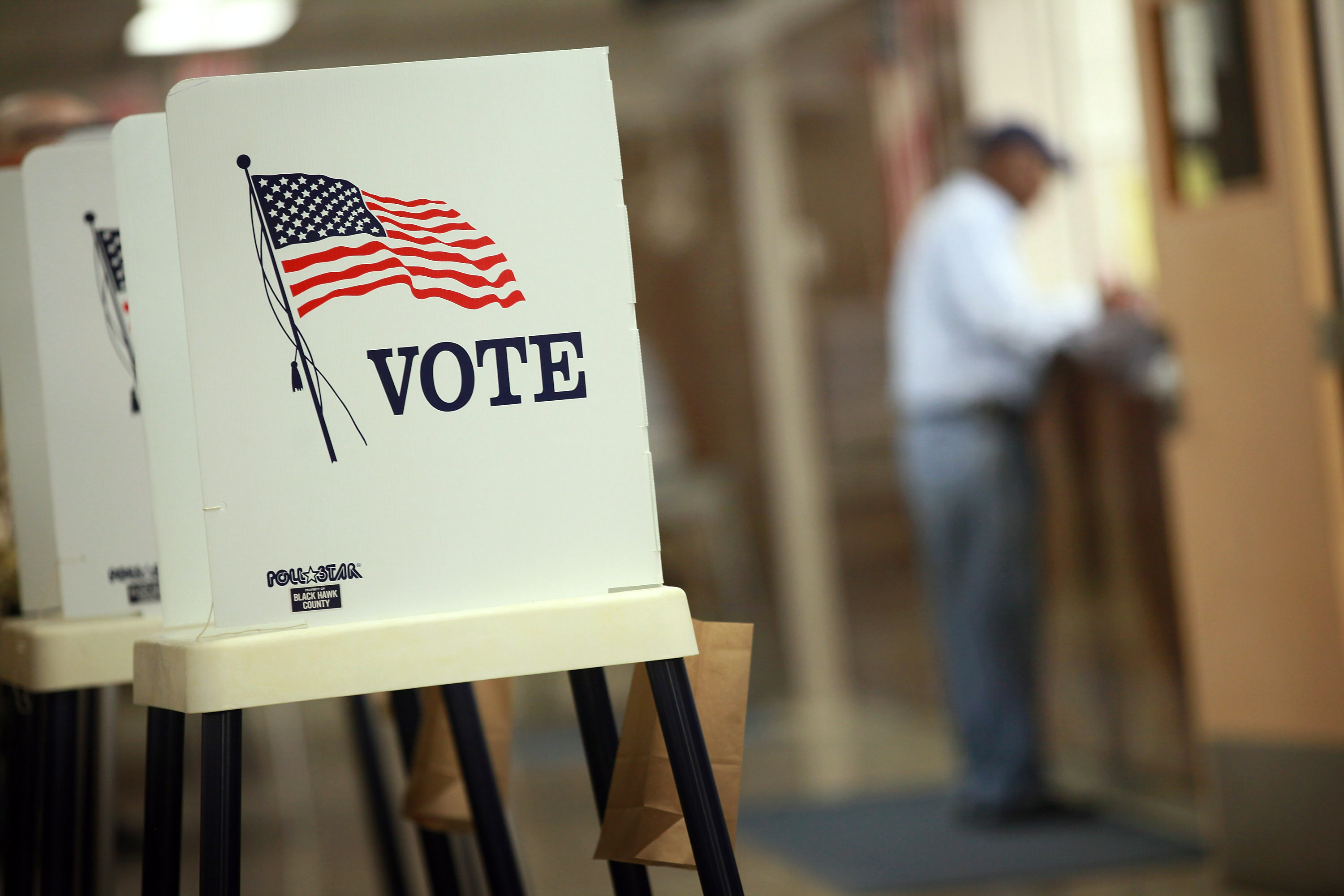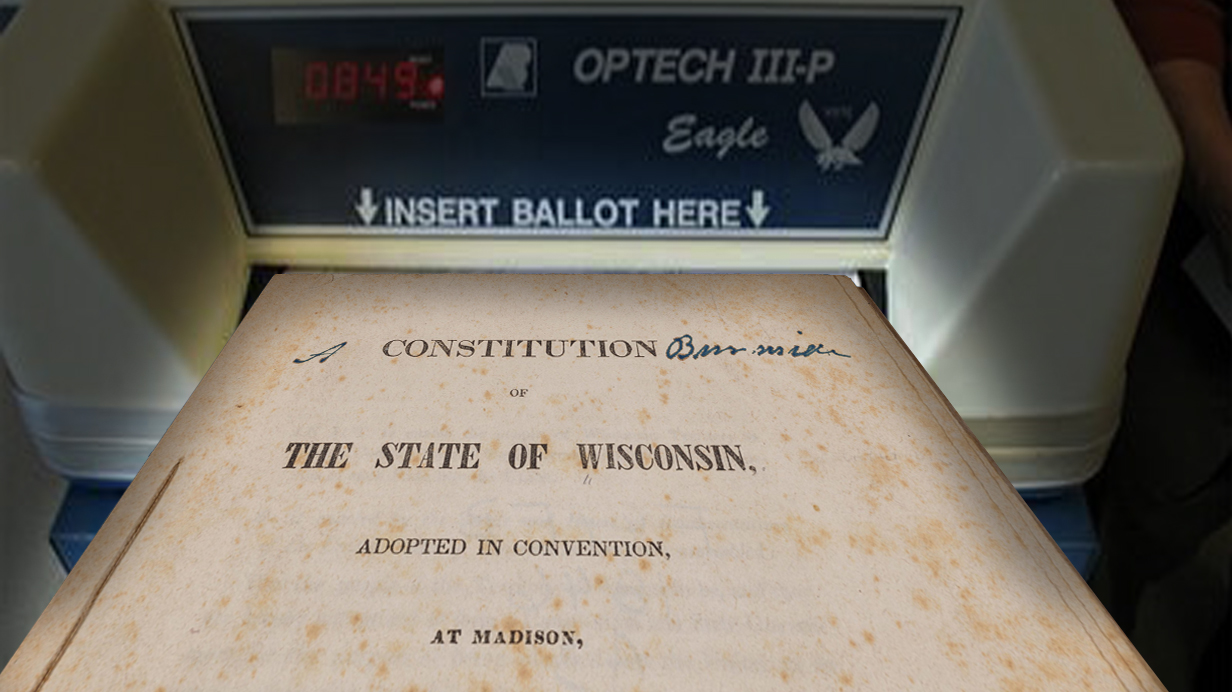 [bctt tweet=”A United Steelworkers Local employed dirty tricks to illegally keep a union shop worker paying dues for over a year, with only a brief “Window Period” provided to revoke the automatic payments, a lawsuit alleges #wiright #wipolitics ” username=”MacIverWisc”]
[bctt tweet=”A United Steelworkers Local employed dirty tricks to illegally keep a union shop worker paying dues for over a year, with only a brief “Window Period” provided to revoke the automatic payments, a lawsuit alleges #wiright #wipolitics ” username=”MacIverWisc”]
By M.D. Kittle
MADISON, Wis. — Right-to-work advocates may have just found a way to get around Wisconsin Attorney General Josh Kaul’s failure to defend worker freedom.
The National Right to Work Foundation on Tuesday announced it has filed a federal lawsuit on behalf of Martin Carter, an employee at Burlington-based Packaging Corp. of America (PCA), against the United Steelworkers Local 231.
Carter alleges the union trapped him into forced union dues with a revocation policy that breaches both state and federal law, according to the complaint filed in the U.S. District Court for Wisconsin’s Eastern District.
The union, the complaint suggests, used dirty tricks to illegally keep Carter paying dues for over a year, with only a brief “Window Period” provided to revoke the automatic payments.
A representative from the United Steelworkers national office did not return requests for comment.
Carter’s lawsuit follows on the heels of Kaul’s refusal to defend the provision in Wisconsin’s right-to-work law that allows private-sector workers to back out of automatic dues payments for up to 30 days after signing a union card.
In April, Kaul, dropped Wisconsin’s case before the U.S. Supreme Court. The Democrat’s move effectively ended Wisconsin’s appeal of a lower court decision that gave Big Labor a big victory and an extended period of time to grab dues from the paychecks of workers who don’t want to pay them.
The attorney general, whose campaign was heavily financed by Big Labor, recently settled with the International Association of Machinists District 10, insisting the resolution “is in the best interests of taxpayers.”
“Martin Carter’s case shows there are real worker victims of Attorney General Kaul’s dereliction of his duty to defend all of Wisconsin’s laws,” National Right to Work Foundation President Mark Mix, said in a statement.
According to the complaint, Carter believed mistakenly after being hired at the Burlington packaging plant that signing off on the dues check-off was a condition of employment. Wisconsin’s right-to-work law, signed by former Republican Gov. Scott Walker in 2015, prohibits labor agreements from requiring union membership and compulsory dues as a condition of employment.
When Carter attempted to revoke the authorization within the 30 window Period under Wisconsin law, union agents “stonewalled” his attempts to deliver his letter, according to the foundation’s statement.
On Nov. 15, 2018, Carter hand-delivered his letter to the company ending his union membership and revoking his dues checkoff, according to the complaint. That same day, he submitted a copy of the letter to the third-shift union steward Kevin Kugler, who refused to accept it, court documents state. The letter, Kugler said, had to go to Union President Eric Licht.
The next day Carter attempted to give the resignation letter to the first-shift steward. Again, he was told to take it to the union president. He did. It didn’t matter.
The company stopped automatically withdrawing dues from his wages in mid-November, but it resumed taking the union’s allegedly illegal cut in early January. PCA informed Carter that it was resuming dues deductions “because the Union had informed PCA it had received Carter’s November 15, 2018 resignation and revocation letter on November 16, 2018 and rejected his revocation as untimely based on his checkoff,” according to the complaint.
The penalty is forced union dues for an extended period of time.
“The Union does not immediately honor the revocation but only considers the revocation effective ‘the month following the month in which such written [revocation] notice is given.’ Meaning, the employee’s annual checkoff is effective for at least 367 days, and up to 426 days.
Carter alleges the union’s extended period runs afoul of the Labor Management Relations Act. Under federal law, workers who want out of a union can be stuck paying dues for up to a year before they can use the “escape clause.” Steelworkers Local 231 exceeded the legal timeframe, according to the complaint.
Which brings the dispute back to Wisconsin’s attorney general, and perhaps back to the U.S. Supreme Court.
Kaul backed out of the appeal before the high court, the Democrat said, as a matter of law. Last year, the Seventh Circuit Court of Appeals in a 2-1 ruling declared federal law preempted Wisconsin’s right-to-work law as it pertained to the timeframe in which union shop workers have to end automatic dues deductions.
The appeals court panel majority, an Obama nominee and a George H.W. Bush-nominated judge, wrote that Congress allows labor organizations to enforce union dues authorizations, which are “a convenient way for employees to pay their union dues.” Wisconsin’s law modifies “the terms of voluntary payroll deductions,” making unions more susceptible to a mass dues exodus at one time.
In short, more protection for forced union dues, exactly what Wisconsin’s right-to-work law, in effect since 2015, aims to stop.
Cater’s lawsuit could give the U.S. Supreme Court another opportunity to decide an important area of worker freedom law. Court watchers say at least some of the justices must have been interested in the case Kaul recently settled: the court held a second conference on it, a good indicator, experts say, that the case was on the court’s radar.
While running for attorney general, Kaul, whose campaign received more than $400,000 in direct union contributions, pledged to defend Wisconsin laws, even the ones he didn’t like.
“As this case shows, union bosses play fast and loose with workers’ rights in their attempt to trap them into forced dues payments against their will, which is precisely why Wisconsin legislators enacted the Right to Work law’s provision giving workers the option of cutting off dues payments within 30 days of asking to do so,” Mix, of the Right to Work Foundation, said.




